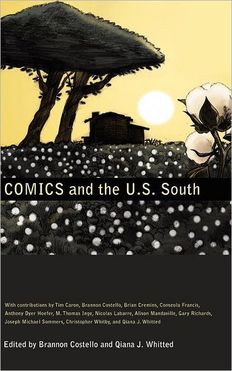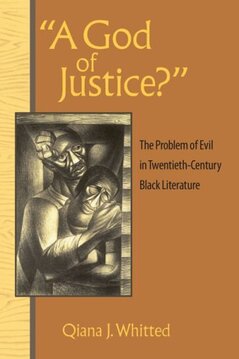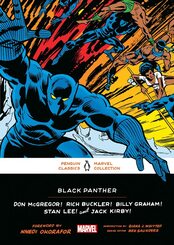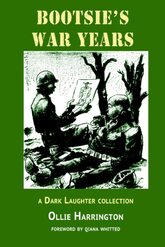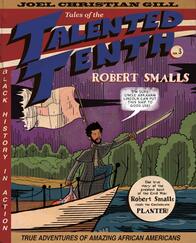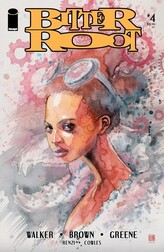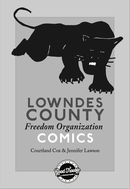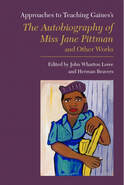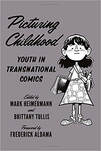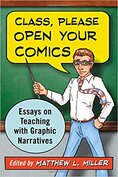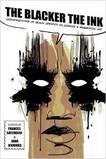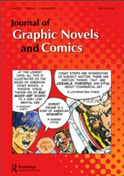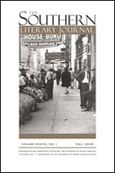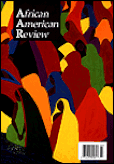Books and Edited Collections
|
Desegregating Comics: Debating Blackness in the Golden Age of American Comics
Rutgers University Press, 2023 Click here to visit the book's main page for the table of contents and interviews with the book's contributors. This collection explores race and blackness in comic books, comic strips, and editorial cartoons in the United States from the turn of the twentieth century through the height of the industry’s popularity in the 1950s. The historical perception of Black people in comic art has long been tied to caricatures of minstrels, witch doctors, and jungle savages. Yet the chapters in this collection reveal a more complex narrative and aesthetic landscape, one that was enriched by the negotiations among comics artists, writers, editors, distributors, and readers over how blackness should be portrayed in popular culture. The book brings together an extraordinary group of scholars in comics studies to consider the lasting impact of the Jim Crow era’s tumultuous racial politics on the most prolific decades of the American comics industry. |
|
EC Comics: Race, Shock, and Social Protest
Rutgers University Press, 2019 2020 Eisner Award for Best Academic/Scholarly Work Entertaining Comics Group is perhaps best-known today for lurid horror comics like Tales from the Crypt and for a publication that long outlived the company’s other titles, Mad magazine. But during its heyday in the early 1950s, EC was also an early innovator in another genre of comics: the so-called “preachies,” socially conscious stories that boldly challenged the conservatism and conformity of Eisenhower-era America. EC Comics: Race, Shock, and Social Protest examines a selection of these works - sensationally-titled comics such as “Hate!”, “The Guilty!” and “Judgment Day!" - and explores how they grappled with civil rights struggle, antisemitism, and other forms of prejudice in America. Putting these socially aware stories into conversation with EC’s better-known horror stories, Qiana Whitted discovers surprising similarities between their narrative, aesthetic, and marketing strategies. She also recounts the controversy that these stories inspired and the central role they played in congressional hearings about offensive content in comics. |
|
Comics and the U.S. South
Edited with Brannon Costello University Press of Mississippi, 2012 This collection offers a wide-ranging and long overdue assessment of how life and culture in the United States South is represented in serial comics, graphic novels, newspaper comic strips, and webcomics. Diverting the lens of comics studies from the skyscrapers of Superman’s Metropolis or Chris Ware’s Chicago to the swamps, back roads, small towns, and cities of the U.S. South, this collection critically examines the pulp genres associated with mainstream comic books alongside independent and alternative comics. Essays consider what Captain America can reveal about southern regionalism and how slave narratives can help us reread Swamp Thing; others examine how creators such as Walt Kelly, Howard Cruse, Kyle Baker, Josh Neufeld, and Randall Kenan draw upon the unique formal properties of the comics to question and revise familiar narratives of race, class, and sexuality. |
|
"A God of Justice?"
The Problem of Evil in 20th Century Black Literature University of Virginia Press, 2009 This study closely examines representations of spiritual crisis and critique in twentieth-century Black American writing. My analysis considers how the most distinguished writers of this literary tradition wrestle with the inexplicable nature of God and struggle to reconcile the experience of racial oppression and other forms of unmerited suffering with classic Christian concepts of God’s justice, power, and goodness. My research explores the work of Countée Cullen, Nella Larsen, Richard Wright, James Baldwin, Ernest Gaines, Alice Walker, and Toni Morrison who offer paradigmatic examples of the spiritual and existential dilemma known as “the problem of evil” after World War I. Chapters identify concepts that formulate questions about the meaning of suffering in relation to black experience, including: the crucified Black Christ, the mourner’s bench trope, and “spiritual infidelity” in Black women’s writing. By questioning what is at stake for African Americans who issue the call for divine justice, my work endeavors to broaden the horizons of critical religious inquiry in black literary and cultural studies. |


